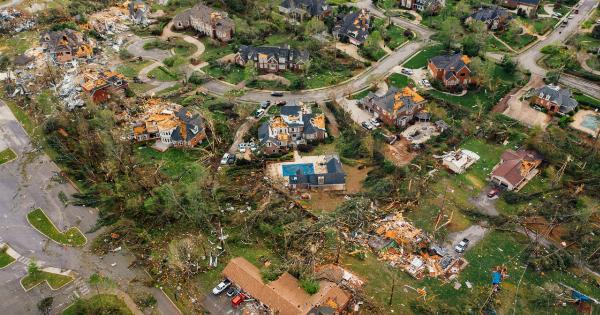In any relationship, both partners bring their flaws and imperfections. These small blemishes, when overlooked, don’t usually pose a significant threat to the relationship.
However, there are instances where these tiny flaws can unexpectedly become major factors that lead to the end of a relationship. In this article, we will explore ten ways in which these minute imperfections can have a substantial impact on the dynamics of a relationship.
Lack of Communication
One common tiny flaw that can end a relationship is a lack of communication.
It may seem insignificant at first, but when partners fail to express their feelings, thoughts, and concerns openly, it can lead to misunderstandings, resentment, and emotional distance.
Unresolved Conflict
Another small flaw that can eventually break a relationship is the inability to resolve conflicts effectively. Over time, unresolved conflicts can create a toxic environment, erode trust, and create emotional distance between partners.
Different Perspectives on Finances
Financial beliefs and habits can vary between partners, and this seemingly insignificant flaw can cause significant strain in a relationship.
Disagreements over money management, spending habits, or financial goals can lead to constant arguments and deep-rooted resentment.
Lack of Emotional Support
When one partner is unable to provide the necessary emotional support to the other, it can gradually wear down even the strongest relationships. This tiny flaw can make a person feel neglected, unimportant, and emotionally isolated.
Distrust and Jealousy
Even the tiniest seed of distrust can grow exponentially and poison a relationship. Jealousy and suspicions, even if unfounded, can erode trust and create an atmosphere of constant insecurity and doubt.
Intimacy and Affection Deficit
A lack of intimacy and affection is another small flaw that can have a profound impact on a relationship’s longevity.
Physical and emotional connections are vital for a relationship to thrive, and the absence of these elements can leave a partner feeling unloved or unwanted.
Unfulfilled Expectations
When one partner has unmet expectations, it can lead to disappointment and frustration. Over time, this tiny flaw can build up resentment and create a sense of unfulfillment, eventually becoming a catalyst for the end of a relationship.
Unbalanced Power Dynamics
In any relationship, it is essential to maintain a healthy balance of power.
When one partner consistently holds more control or constantly undermines the other, it can chip away at the foundation of trust and equality, leading to the demise of the relationship.
Unresolved Personal Baggage
We all carry emotional baggage from past experiences, and when these issues are left unresolved, they can seep into our current relationships.
Guilt, unresolved trauma, or emotional scars can manifest as trust issues, emotional unavailability, or self-sabotage, gradually eroding the relationship.
Lack of Personal Growth
Personal growth and self-improvement are essential for any healthy relationship. When one partner stagnates while the other evolves, the relationship can become unbalanced.
The lack of personal growth and development can lead to feelings of incompatibility and become a significant reason for the relationship’s end.
Conclusion
While it may seem counterintuitive, it is crucial to recognize that even the smallest flaws can have a significant impact on a relationship’s dynamics.
Lack of communication, unresolved conflicts, differing financial perspectives, emotional detachment, distrust, lack of intimacy, unmet expectations, power imbalances, unresolved personal baggage, and stagnant personal growth are all seemingly tiny flaws that can lead to the end of a relationship. It is essential to address these flaws early on to prevent them from magnifying and causing irreparable damage.
By nurturing open communication, mutual understanding, and continuous personal growth, partners can strengthen their bond and cultivate a lasting, fulfilling relationship.





























